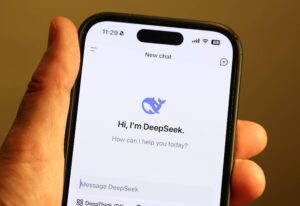PCMag and Mashable Publisher Initiates Legal Action Against OpenAI

Ziff Davis Files Lawsuit Against OpenAI
Ziff Davis, a prominent digital publisher known for popular tech platforms like Mashable, PCMag, and Lifehacker, has recently taken legal action against OpenAI. This move aligns with a growing trend among media companies claiming that OpenAI has misused their content.
Background on Ziff Davis
Ziff Davis ranks as one of the largest publishing entities in the United States. With over 45 websites under its umbrella, the company attracts approximately 292 million visitors each month. This extensive reach positions Ziff Davis as a significant voice in the ongoing discussion about the impacts of artificial intelligence on traditional media.
Allegations Against OpenAI
In a detailed 62-page complaint lodged in federal court in Delaware, where OpenAI is based, Ziff Davis accuses the AI company of "intentionally and relentlessly reproducing exact copies" of its works. The complaint emphasizes that OpenAI’s actions infringe on the publisher’s copyrights and dilute its trademarks. It alleges that OpenAI incorporated Ziff Davis content into its AI models, which in turn generates responses through the well-known ChatGPT chatbot.
According to the filing, Ziff Davis argues that OpenAI was aware that its activities violated the company’s intellectual property rights and relevant laws. As a result, Ziff Davis is seeking damages in the range of hundreds of millions of dollars.
Industry Reaction to AI Advancements
The publishing industry, which has already experienced significant disruptions due to technology, is now facing new challenges posed by artificial intelligence. The proliferation of technology platforms like search engines and social media has altered how content is consumed. Now, with the rise of AI systems, many executives express concern about how these technologies utilize copyrighted materials without proper consent.
Publishing companies have responded to this challenge in two main ways. Some have opted to negotiate content licensing agreements with AI tech companies for substantial payouts, similar to what News Corp, publisher of The Wall Street Journal, has done. Others have chosen to pursue legal action to defend their rights and seek reparations for the unauthorized use of their content.
Legal Landscape
Numerous lawsuits against OpenAI are still in progress, and recently, a U.S. judicial panel consolidated various claims against the company, including those brought forth by The New York Times. This consolidation indicates that the legal battles around AI and copyright are gaining momentum in the courts.
Ziff Davis’s Decision to Sue
Ziff Davis executives have deliberated over the best course of action to address their concerns regarding AI’s impact on their content. Choosing to pursue litigation signifies a proactive approach. They aim not only for financial compensation but also hope that their lawsuit will encourage other publishers to take similar stands against unauthorized content use.
In summary, as artificial intelligence technologies like OpenAI’s ChatGPT continue to evolve, the tension between content creators and technology companies is intensifying. This lawsuit represents a crucial moment for the media industry as it grapples with the implications of AI on digital content and intellectual property rights.






